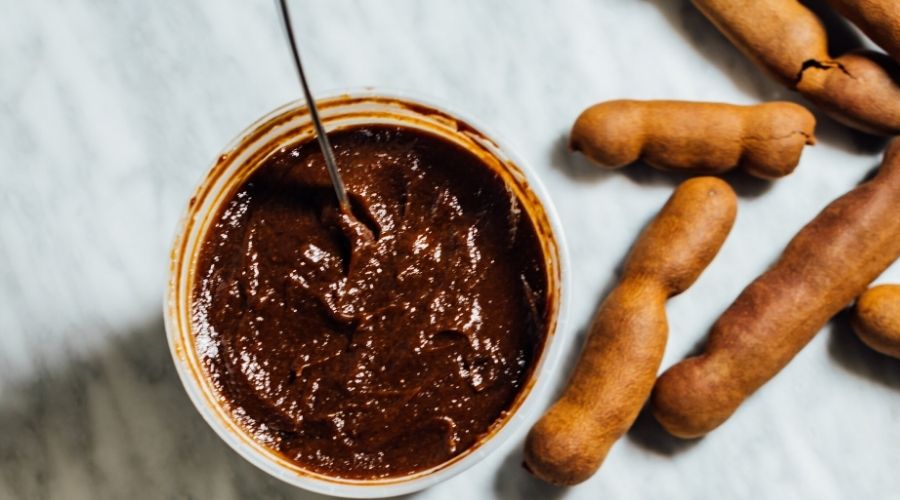In the culinary world, fresh lemon juice is a staple ingredient known for its bright, tangy flavor and acidity.
However, there are times when you might find yourself without this citrus essential.
Whether you’re in the middle of a recipe and realize you’re out of lemons, or you need to accommodate dietary preferences, knowing how to substitute fresh lemon juice can be a real lifesaver.
Fortunately, there are several effective alternatives that can mimic the flavor and acidity of lemon juice.
In this blog post, we’ll explore over a dozen fresh lemon juice substitutes that can save your recipes and help you adapt to whatever ingredients you have on hand.
From common pantry staples to creative options, you’ll find the perfect substitute for any cooking or baking need.
12+ Easy Substitutes for Fresh Lemon Juice in Cooking and Baking
Choosing the right substitute for fresh lemon juice depends largely on the dish you’re preparing and the role lemon juice plays in the recipe.
Whether you’re looking for a citrusy kick, a touch of acidity, or a bit of sweetness, there are numerous alternatives that can effectively replace fresh lemon juice.
From lime juice and vinegar to more unique options like tamarind paste and citric acid, these substitutes offer versatility and convenience.
By understanding the characteristics of each option, you can ensure that your dishes maintain their intended flavor and balance, even without fresh lemon juice.
Lime Juice
Lime juice is one of the best substitutes for fresh lemon juice because it has a similar acidic and tart flavor profile.
Both lime and lemon share citrusy undertones, making lime juice an excellent alternative in recipes where acidity is essential, such as marinades, dressings, or desserts like lemon bars.
However, lime juice tends to be slightly sweeter than lemon juice, so it’s important to taste and adjust the amount based on personal preference.
It works especially well in Mexican or Thai dishes and beverages like lemonade or cocktails. Be cautious when using it in baking recipes, as the flavor difference can become more noticeable.
Apple Cider Vinegar

Apple cider vinegar (ACV) can be a surprising but effective substitute for lemon juice, especially in savory recipes.
Its tangy and slightly sweet flavor can mimic the brightness lemon juice offers, making it ideal for salad dressings, marinades, or sauces.
ACV is slightly more potent, so it’s best to use about half the amount of lemon juice the recipe calls for and adjust to taste.
However, because it lacks the citrus aroma, it’s not a suitable replacement for desserts or dishes where lemon’s fruity flavor is a key component.
Also Read: 12+ Delicious Low-Calorie Replacements for Heavy Cream in Your Favorite Dishes!
White Wine Vinegar
White wine vinegar offers a light and mildly acidic flavor that can stand in for fresh lemon juice in a variety of dishes. Its neutral taste is ideal for salad dressings, vinaigrettes, and even some lighter sauces.
Because it lacks the distinctive citrus punch, it’s not recommended for recipes where lemon juice plays a significant flavor role, such as lemon-based desserts.
Use the same amount as you would lemon juice but taste as you go. Be cautious when using in sweet dishes, as it lacks any of lemon’s sweet notes.
Cream of Tartar
Cream of tartar, a dry acidic powder, can substitute for lemon juice in baking recipes where acidity is needed to activate baking soda.
Its neutral flavor makes it an excellent choice for baked goods such as cakes, cookies, or soufflés. Since it doesn’t add any liquid, cream of tartar works well when maintaining the texture of the dish is important.
You’ll need about 1/4 teaspoon of cream of tartar for every teaspoon of lemon juice in recipes.
However, this substitute is best for baking and not suitable for dishes that rely on the fresh, vibrant flavor of lemon juice.
Orange Juice
Orange juice can be a suitable substitute for fresh lemon juice, especially in sweet dishes or beverages. It offers a citrus flavor similar to lemon but with a sweeter, less tart profile. This makes it ideal for desserts, fruit salads, or cocktails where a touch of sweetness is welcome.
However, because orange juice is less acidic than lemon juice, it might not provide the same sharp tang, so you may want to increase the quantity slightly or add a small amount of vinegar to balance the sweetness.
Be cautious when using it in savory recipes where a strong acidic punch is needed, as the sweetness can alter the dish’s flavor.
Citric Acid
Citric acid, available in powdered form, is a highly concentrated source of citrus flavor and acidity. It can be used as a substitute for lemon juice, especially in recipes that require acidity without adding extra liquid, such as dry rubs, seasonings, or certain baked goods.
A little goes a long way – use about 1/4 teaspoon of citric acid for every teaspoon of lemon juice the recipe calls for. Since citric acid lacks the fruity taste of lemon, it’s best for recipes where acidity is the primary role of lemon juice.
Avoid using it in dishes where lemon’s fresh, zesty flavor is key.
Also Read: 12+ Nutritious and Tasty Low-Calorie Alternatives to Heavy Cream!
Vinegar and Sugar Mixture
A mixture of white vinegar and sugar can mimic the acidity and sweetness of lemon juice in certain recipes. Combine 1 teaspoon of white vinegar with 1/4 teaspoon of sugar for every 1 teaspoon of lemon juice required.
This combination is best for savory recipes like sauces, salad dressings, or marinades, where a balanced acidic-sweet flavor is needed.
However, this substitute lacks the citrus aroma and is not recommended for desserts or recipes that rely on lemon’s distinct flavor.
Be careful not to overdo the sugar, as it can shift the balance from tangy to overly sweet.
Tamarind Paste

Tamarind paste can be a unique and flavorful substitute for lemon juice, particularly in Indian, Thai, or Latin American recipes.
Tamarind has a tangy, sour flavor with a slight sweetness, making it a suitable replacement in savory dishes like curries, chutneys, or marinades.
Due to its strong taste, it’s best to use it in small amounts, starting with half the quantity of lemon juice and adjusting to taste.
Be cautious when using tamarind paste in recipes where the citrusy brightness of lemon is crucial, as its flavor is more robust and earthy, which may not work well in delicate or sweet dishes.
White Grapefruit Juice
White grapefruit juice offers a tangy, slightly bitter flavor similar to lemon juice, making it a suitable substitute in both sweet and savory dishes. It’s a great option for marinades, salad dressings, or seafood dishes where a citrus kick is needed.
While grapefruit juice provides the acidity necessary to balance flavors, it’s slightly less tart and has a more pronounced bitterness compared to lemon juice.
This makes it perfect for those who enjoy complex flavors, but it may not work as well in desserts or cocktails that require lemon’s sweeter notes.
Be cautious when using it in large quantities, as the bitterness can overpower other ingredients.
Lemon Extract
Lemon extract is a concentrated liquid made from lemon oil, and it can be used as a substitute for fresh lemon juice in recipes where the lemon flavor is the primary focus.
Since it lacks the acidity of lemon juice, it’s best suited for desserts, baked goods, and sauces where lemon flavor is important, but the acidity isn’t as crucial.
Use about 1/2 teaspoon of lemon extract for every 1 teaspoon of lemon juice. However, be careful not to overuse it, as its strong flavor can become overpowering.
Also, it won’t work well in savory dishes or recipes where the tartness of lemon juice is needed for balance.
Also Read: 12+ Healthy Dry Ranch Dressing Substitutes You Can Make at Home!
Yogurt
Plain yogurt can be a unique and creamy substitute for lemon juice, particularly in recipes that require both acidity and a slight tang.
It works well in marinades, sauces, and dressings where the lemon juice’s acidity is needed to tenderize or enhance flavor.
The slight tartness of yogurt makes it ideal for recipes like tzatziki, dressings, or even baking where the creaminess complements the dish.
However, yogurt adds thickness and may alter the texture of a recipe, so it’s not suitable for dishes that rely on lemon’s liquid form. You can thin it with a little water if needed but avoid using it in recipes where a strong citrus flavor is essential.
Sour Cream

Sour cream can be a surprisingly good substitute for lemon juice in recipes where tang and moisture are required, particularly in baking or savory dishes like dips, sauces, or casseroles.
Its tart flavor mimics the acidic nature of lemon juice, while its creamy texture adds richness to the dish.
Sour cream is best used in recipes like baked goods (such as cakes and muffins), creamy sauces, or even potato salads, where the tanginess complements other ingredients.
However, it lacks the citrusy brightness of lemon juice, so it’s not ideal for dishes like lemon bars or recipes that rely on lemon’s fresh, zesty flavor. Be cautious about the extra creaminess it brings.
How to Make Fresh Lemon Juice Substitute at Home
If you’re in a pinch and need a lemon juice substitute but don’t have any lemons on hand, you can easily make a homemade alternative using common pantry ingredients.
This simple recipe combines the tartness of vinegar with a touch of sweetness to mimic the acidity and bright flavor of fresh lemon juice.
Ideal for dressings, marinades, or even in baked goods, this substitute is easy to whip up and can save your recipe from missing that crucial citrus kick.
It’s a versatile option that can be adjusted to fit the flavor profile of your dish.
Ingredients:
- 1 tablespoon white vinegar
- 1/2 teaspoon sugar (adjust to taste)
- 1/4 teaspoon water (optional, for adjusting consistency)
Instructions:
- Combine Ingredients: In a small bowl, mix together the white vinegar and sugar until the sugar is fully dissolved. This combination will simulate the tartness and slight sweetness of lemon juice.
- Adjust Flavor: Taste the mixture. If it’s too tangy, add a small amount of water to mellow it out. If you prefer a sweeter flavor, you can add a pinch more sugar. Stir until well combined.
- Use or Store: Use this mixture immediately as a substitute for fresh lemon juice in your recipes. If you have leftovers, store them in an airtight container in the refrigerator for up to a week.
This homemade lemon juice substitute is a convenient and effective solution for those times when fresh lemons aren’t available.
By using white vinegar and sugar, you can replicate the acidity and balanced sweetness of lemon juice, making it perfect for a variety of recipes.
Whether you’re whipping up a quick salad dressing, a marinade, or need a touch of acidity in your baking, this substitute ensures you don’t miss out on the essential tang.
Keep in mind that while this substitute works well for many dishes, it may not fully replicate the distinct citrus flavor of fresh lemon juice, particularly in recipes where lemon’s unique brightness is a key component.
Nonetheless, it’s a great trick to have up your sleeve for culinary emergencies.
1. What can I use if I don’t have any fresh lemon juice on hand?
If you don’t have fresh lemon juice, you can use several substitutes, such as lime juice, apple cider vinegar, or white wine vinegar.
Lime juice is a great alternative due to its similar tartness. Apple cider vinegar and white wine vinegar provide acidity and can be adjusted with a bit of sugar to mimic the lemon’s balance. For baking, citric acid or a mixture of vinegar and sugar can also work well.
2. Can I use bottled lemon juice instead of fresh lemon juice?
Yes, bottled lemon juice can be used as a substitute for fresh lemon juice in most recipes. While it may lack the vibrant flavor of freshly squeezed lemon juice, it still provides the necessary acidity.
However, bottled lemon juice can be more concentrated, so adjust the amount used based on taste and the recipe requirements.
3. How do I use lime juice as a substitute for fresh lemon juice?
Lime juice can replace fresh lemon juice in a 1:1 ratio. It has a similar tartness and citrus flavor, making it an effective substitute in both sweet and savory dishes.
Just be aware that lime juice may impart a slightly different flavor profile, which could be noticeable in delicate dishes or desserts.
4. Is there a way to substitute lemon juice in recipes without affecting the flavor too much?
If you want to minimize the flavor change, consider using white wine vinegar or apple cider vinegar mixed with a small amount of sugar.
This mixture can replicate the acidity and slight sweetness of lemon juice. For a more neutral option, plain yogurt or sour cream can add tanginess without drastically changing the dish’s flavor.
5. Can I use tamarind paste as a substitute for lemon juice?
Tamarind paste can be used as a lemon juice substitute, particularly in recipes that benefit from its unique tangy and slightly sweet flavor.
It works well in savory dishes and certain sauces but may not be suitable for recipes where lemon’s bright, citrusy flavor is essential, such as in desserts. Use tamarind paste in moderation and adjust according to taste.
References
- https://greatist.com/eat/substitute-for-lemon-juice
- https://www.healthline.com/nutrition/lemon-juice-substitute
- https://www.quora.com/What-is-a-good-substitute-for-lemon-juice
- https://www.reddit.com/r/Cooking/comments/18qxv3b/substitute_for_lemons/
- https://foodess.com/article/substitutes-for-lemon-juice/


